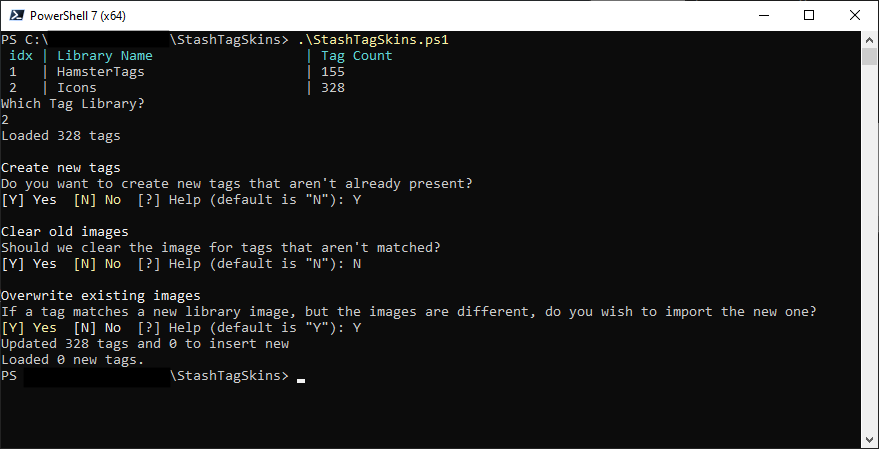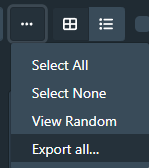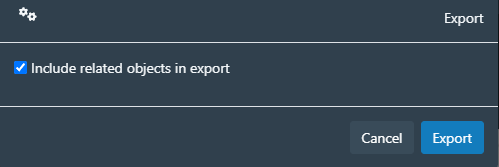| Summary | Used to quickly apply and change themes of tags for Stash. | |
| Repository | https://github.com/Stash-KennyG/StashTagSkins/blob/main/StashTagSkins.ps1 |
StashTagSkins
Used to quickly apply and change themes of tags for Stash.
WARNING
While I will try to support this and fix any basic bugs, I am not responsible if this nukes your database. TAKE A BACKUP NOW! TAKE A BACKUP BEFORE YOUR RUN IT EACH TIME! The script does NOT delete any tags. The only potential data loss is in losing your tag images if they are cleared or overwritten, but please exercise good backup practice. Find me on discord if you have questions, but do not complain about something this did your stash. It works for me, and I have tried very hard to make it work, but this is best efforts - not commercial product.
Note: Disable authentication on stash to run the script. This is the number one issue people have reported with this on Discord. The current version does not do authentication.
Prerequisites
This script requires
- PSGraphQL and
- Powershell 7.
Installing Powershell
Powershell runs on Linux, MacOS and Windows. You do not need to run this script from your stash instance. For convenience it is configured to look for localhost, but you can select any endpoint.
Installing PSGraphQL
By Default, you can use the built-in module manager to get PSGraphQL
Install-Module -Name PSGraphQL -Repository PSGallery -Scope CurrentUser
Executing
Open a powershell terminal and execute the main file to connect to a local stash
.\StashTagSkins.ps1
Or if you’d like you can specify an alternative stash
.\StashTagSkins.ps1 -StashAddress "192.168.1.100:9999"
Configuration
Upon launch, the script will ask you questions to select appropriate options. There are 4 main qustions.
- What library to use?
- Do you want to create new tags that aren’t already present?
- Do you want to restore the default tags to images that are not present in your target library
- If you already have a tag image, do you want to overwrite it?
Once you answer these questions, the script will run.
Extending The Library
The library works on a the same JSON export as stash. All you need to do is submit a PR with your JSON files from the zip created upon export from the tagger.
Extract the zip file into a new subfolder in the Library directory named for your tag image collection. DM me on Discord and I can merge it into the main.


